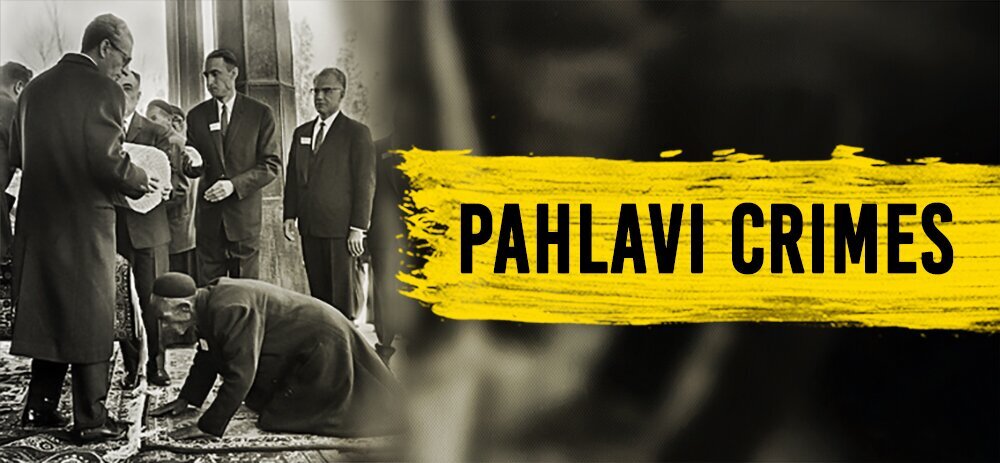Hawzah News Agency – On the occasion of the Iranians' 43rd anniversary of victory of Islamic Revolution, some of crimes committed by Pahlavi King against Iran are presented to you, respected readers:
Mohammad Reza did not know whether he was the king
Read the memoirs of Pahlavi personalities. When in 1941 Reza Khan was dismissed, his son, Mohammad Reza, did not know for a few days whether he would be the king or not! He sent someone to the British Embassy, they said he could be the king, provided that he does not do certain things and does some other things! He was happy. These are the facts of this country. For fifty years, the regime ruling over Iran—which was a dictatorial, monarchical, tyrannical, corrupt regime—was ruled by two individuals who were brought to power by foreigners and people did not have any role in appointing them. Before that, it was the Qajar dynasty and the rule of the Sultans. Read the history of these sultans! People were nothing to them. They regarded government officials, from the prime minister to the lowest levels, as their servants, and they told them ‘you are this and that among our servants’! Such regimes ruled over this country!
Why did the Pahlavi and Qajar regimes confront the clergy?
One of the most important tasks given to Reza Khan was to divest the clergy of any influence with the intention of destroying religion. So, once he took power in 1934 and 1935 he began to dismantle the clergy’s influence. Reza Khan adopted a coercive manner. He assumed he could carry out his work with coercion. He banned wearing a turban and the long robe, as well as clergy titles and seminaries. He devastated—as he thought—the seminaries of Qom and Mashhad, as much as possible. Of course, he could not. Our dear Imam Khomeini was one of the seminary students of that era, the time when the clergy was supposed to completely collapse, due to Reza Khan’s pressures and repressions. But not only the clergy did persisted, but also people like the magnanimous Imam Khomeini emerged among them. The Reza Khan's dynasty did not comprise of only Reza Khan. There were also some of the so-called scholars, thinkers and ideologists of the Reza Khani system who would plan and suggest ideas. When they saw that the pressures did not work, they developed a new plan with the Reza Khan’s money, support and Command and Policy Organization. The plan included the establishment of an institute named "Wa'z wa Khataba" in Tehran. Unfortunately, the young generation are not familiar with these facts. The establishment of "Wa'z wa Khataba" [literally: preaching and sermons] dates back to 1937 and 1938-- two or three years after the beginning of opposing the clergy. The institute was founded so that anyone who wanted to remain a clergyman could remain a clergyman only if they were under the supervision of this institute, which was affiliated to Reza Khan! In other words, they only wanted clergymen who would comply with Reza Khan and serve the policies of the arrogant power.
Reza Khan perpetrated the extension of the D'Arcy Concession for 60 years
In the final years of the frail Qajar reign, the British wanted someone to eliminate those who rebelled in different corners of Iran. In order to prevent the threatening of their interests, they needed a thug, a bully who would at the same time comply with them. They came up with Reza Khan; they trained him and prepared him for what they wanted. First, he was a commander of the army and the prime minister, and then he was appointed as the king and the head of Iran! Only a few years after Reza Khan had come to power by the British, he started thinking he could ask them for more money in return for oil. Of course, his submission to the British did not cease; however, every servant might, at times, consider asking his master for more money! His hounding temperament incited him to adopt a bulling manner towards the D'Arcy Concession, which still had thirty years to end. He entered a meeting of regime officials and put the D'Arcy Concession in the fireplace and burned it! When he was told that "thirty years remained of the validity of the contract”, he said: "What sort of a contract is this? They must give us more money for oil." And, who was the other party of the contract? A British company! Once Reza Khan did this to the D'Arcy Concession, the British government reacted and made a lot of fuss. Eventually, the British defeated Reza Khan and made the contract last for another sixty years, which originally had only thirty years left of its validity. That is, he signed another agreement with the British. This was what the British did with respect to Iran's oil, from Qajar to the end of Reza Khan's rule.
To be continued...
Source: Khamenei.ir


Your Comment